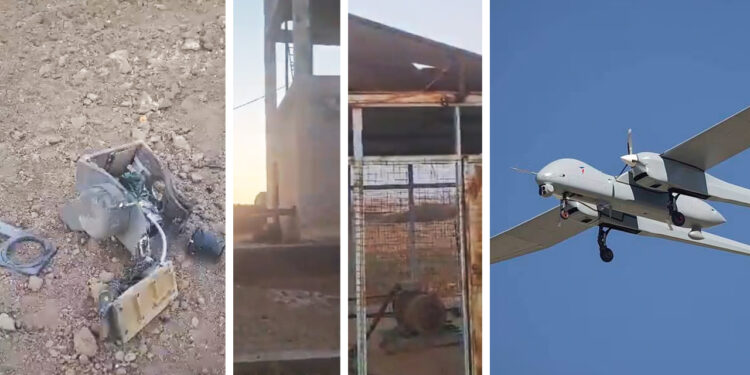The Turkish military carried out an airstrike against a water pumping station in the countryside of Qamishli (Qamişlo), northern Syria. The airstrike is reported to have put the facility out of order and cut water access to thousands of residents.
The Turkish military conducted a drone strike on a water pumping station in the countryside of Qamishli (Qamişlo), situated in northern Syria’s northern region of Derik on 5 August. The attack reportedly rendered the facility inoperative, cutting off water access for thousands of residents, Hawer News reported.
Turkey claims that its military operations in the area are directed against military targets. However, such an assault on critical civilian infrastructure raises significant questions since the water pumping station, crucial to the local water supply, does not conform to the military profile. This incident is part of a broader pattern of military assaults on civilian services and infrastructure throughout the Kurdish-led Democratic Autonomous Administration of North and East Syria (DAANES).
Local sources also hold Turkey responsible for a drone strike on an olive oil factory on Monday, in the Kerbawi suburb of Qamishli, which caused extensive damage. Official confirmation is pending.
A situation report prepared by the UN Office for the Coordination of Humanitarian Affairs, documents the disruption caused to civilian life by Turkish airstrikes in northern Syria. Fuel, electricity and water supplies have been disrupted in 11 towns and 2,750 villages, affecting more than 1 million people since October, the UN office said, stating that systematic attacks on basic services have worsened the region’s humanitarian crisis.
Turkish bombardments have disabled the Alouk water station, with over 610,000 people no longer having close access to reliable water, and over 1.4 million having their access limited due to the lack of power. These disruptions put the lives and welfare of civilians, especially in the camps supported by NGOs, at great risk.
Medical facilities targeted in December were left with critical damage—oxygen supplies and basic health services, including laboratory work and X-ray facilities—shattered. According to the North and East Syria NGO Forum, the level of destruction has gone well beyond the humanitarian community’s capacity deficit to respond to urgent life-saving needs. It calls for massive rehabilitative efforts to restore basic services and protect civilians and relief workers in the region.
Turkey’s fresh offensive in northern Syria, however, has left as many as 660 villages without electricity, with energy facilities and civilian areas targeted, including grain stores and residential buildings. Energy facilities in Kobani (Kobanê), Amuda (Amudê), and Qamishli have been targeted by Turkish Unmanned Ariel Vehicles (UAVs). Several other critical infrastructures in these places, including wheat storage facilities, an electricity plant, and a petrol station, have been under attack. The energy office of the Euphrates governorate reported a power cut in Kobani, Ain Issa (Eyn Îsa), and surrounding villages.
It further reported that the Syrian Democratic Forces (SDF) condemned Turkey for committing deliberate war crimes in the region, with the targeting increasingly catastrophic for civilian life. The SDF stated its right to respond to these attacks and to protect its people and territory.

